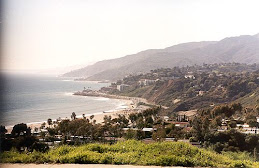School kid speaks 10 languages
By Rod Chaytor 30/10/2007
A boy genius of 10 has stunned teachers by learning to speak 10 languages.
Arpan Sharma taught himself French, Spanish, German, Italian, Swahili, Mandarin, Polish, Thai and the difficult Lugandan language of Uganda. He also learned Hindi from his mum and dad.
The gifted primary school pupil from Oldbury, West Mids, studied using CD-roms.
He learned Italian fluently at seven, German at eight, and Spanish when he was nine.
But he admitted: "Learning Swahili was probably one of the biggest challenges I've faced and Mandarin Chinese was hard too."
Deputy Headmaster Richard Lynn, of Blue Coat School, Edgbaston, Birmingham, said: "Arpan is a language genius, a natural when it comes to listening to an exact pronunciation and repeating it perfectly."
Arpan wants to be a surgeon and work in hospitals abroad and speak each country's tongue.
Wednesday, October 31, 2007
*** Ambani becomes world's richest
Ambani elbows out Gates to become world's richest
October 29, 2007, PTI
New Delhi: Chairman of Reliance Industries Limited (RIL) Mukesh Ambani on Monday became the richest person in the world, surpassing American software czar Bill Gates, Mexican business tycoon Carlos Slim Helu and investment guru Warren Buffett, courtesy the bull run in the stock market.
Following a strong share price rally on Monday in his three group companies – India's most valued firm Reliance Industries, Reliance Petroleum and Reliance Industrial Infrastructure Ltd – the net worth of Ambani rose to $63.2 billion (Rs 2,49,108 crore).
In comparison, the net worth of both Gates and Slim is estimated to be slightly lower at around $62.29 billion each, with Slim leading among the two by a narrow margin.
Warren Buffett, earlier the third richest in the world, also dropped one position with a net worth of about $56 billion.
Ambani's wealth of about Rs 2,49,000 crore includes about Rs 2,10,000 crore from RIL (50.98 per cent stake), Rs 37,500 crore from RPL (37.5 per cent) and Rs 2,100 crore from RIIL (46.23 per cent).
Slim's wealth has been calculated on the basis of his stake in companies like America Movil (30 per cent), Carso Global (82 per cent), Grupo Carso (75 per cent), Inbursa (67 per cent), IDEAL (30 per cent) and Saks Inc (10 per cent).
According to information available with the US and Mexican stock exchanges where these companies are listed, Slim currently holds shares worth a total of $62.2993 billion, with more than half coming from Latin American mobile major America Movil.
Slim is closely followed by Gates with a net worth of $62.29 billion currently.
URL: http://www.ibnlive.com/news/ambani-elbows-out-gates-to-become-worlds-richest/51373-7.html?xml
October 29, 2007, PTI
New Delhi: Chairman of Reliance Industries Limited (RIL) Mukesh Ambani on Monday became the richest person in the world, surpassing American software czar Bill Gates, Mexican business tycoon Carlos Slim Helu and investment guru Warren Buffett, courtesy the bull run in the stock market.
Following a strong share price rally on Monday in his three group companies – India's most valued firm Reliance Industries, Reliance Petroleum and Reliance Industrial Infrastructure Ltd – the net worth of Ambani rose to $63.2 billion (Rs 2,49,108 crore).
In comparison, the net worth of both Gates and Slim is estimated to be slightly lower at around $62.29 billion each, with Slim leading among the two by a narrow margin.
Warren Buffett, earlier the third richest in the world, also dropped one position with a net worth of about $56 billion.
Ambani's wealth of about Rs 2,49,000 crore includes about Rs 2,10,000 crore from RIL (50.98 per cent stake), Rs 37,500 crore from RPL (37.5 per cent) and Rs 2,100 crore from RIIL (46.23 per cent).
Slim's wealth has been calculated on the basis of his stake in companies like America Movil (30 per cent), Carso Global (82 per cent), Grupo Carso (75 per cent), Inbursa (67 per cent), IDEAL (30 per cent) and Saks Inc (10 per cent).
According to information available with the US and Mexican stock exchanges where these companies are listed, Slim currently holds shares worth a total of $62.2993 billion, with more than half coming from Latin American mobile major America Movil.
Slim is closely followed by Gates with a net worth of $62.29 billion currently.
URL: http://www.ibnlive.com/news/ambani-elbows-out-gates-to-become-worlds-richest/51373-7.html?xml
*** Economic consequences of Talibanisation
Economic consequences of Talibanisation - Daily Times, Pakistan
Wednesday, October 31, 2007
During the 1990s Pakistan’s annual growth rate averaged about 3 percent. The main reason for this was the low level of domestic and international business confidence in the economy coupled with financial mismanagement. Indeed, foreign investment and remittances were dropping and privatisation proceeds, where available, were being squandered.
Meanwhile, the politics of state sponsored jihad and Talibanisation in the region led to conflict-ridden backlashes of sectarianism and bomb explosions. All this changed after 9/11 when a lid was put on jihad, regional peace initiatives were launched and economic management became efficient and merited.
In short, domestic political stability brought economic continuity and renewed confidence and good foreign policies brought debt write offs and aid and investment dividends. The economy picked up together with the rest of the region including the Gulf where the economies boomed despite the Iraq war. Pakistan got out of the IMF oxygen tent and breathed free, able to take measures that were earlier banned under the “conditionalities” of restructuring.The pattern was familiar to Pakistanis.
When politicians rule, the economy goes down; when the generals rule, the economy picks up. Under President General Pervez Musharraf the economy began to hum and he was able to collect record revenues to enable him to spend on development as never before. He managed the State Bank better than past rulers, and accompanied good management with liberalisation of sectors kept closed by politicians in the past. But high growth rates in the third world lead to the dreaded rich-poor gap.
In India this gap is becoming more and more frightening every day, but there is also a low level process of poverty alleviation. In China, the latest Congress of the Communist Party discussed the widening of the rich-poor gap under high growth rates. At the centre of discussion was the progressive impoverishment of 700 million farmers in the countryside now forced to migrate to the cities. In Pakistan, too, the rich-poor gap has materialised and instead poverty alleviation is not fast enough. The famous “trickle-down” effect is just not good enough to satisfy the masses. Now the State Bank warns of food-related inflation and a yawning current account deficit, with debt steadily rising in the background. The world outside has changed too. Food is no longer cheap and UN food reserves are down to their last bags of wheat.
Another major famine anywhere in the world and Pakistan will be compelled to import more inflation into a population that is still poor. As bad luck would have it, oil prices too have shot up in the global market, and if Pakistan lets the burden of this hike fall on the citizens, there will be riots in the streets. It has kept its finger plugged into the dike and not passed on the real price to the consumers at the risk of building a mountain of subsidy that will be destructive when the next government thinks of paring it down in 2008.High growth rates also trigger shortages in the energy sector. The State Bank can hardly compute the effects of the power-crunch in Karachi after the privatisation of its electricity monopoly. The mega-city has seen suffering as never before and the victims have been middle and lower middle class, enabled recently to buy the cheap Chinese split air-conditions only to see outages lasting for long hours daily.
Because the Musharraf government was unable to get anyone in the country to agree to build new water reservoirs, there is shortage of the tradition hydel power in the national grid, leading to load-shedding in the rest of the country too. Since most of the electricity is produced in power stations run with gas, Pakistan fears the coming gas crunch with the Iranian gas pipeline project receding from sight as America gets ready to invade Iran.
The Musharraf government could never get terrorism under control long enough to get foreigners to significantly invest in slightly risky manufacturing sectors, but there was enough reassurance for them to invest long-distance in the stock exchange, apart from direct investment in some limited sectors like communications, telecoms, media and banking. The terrorism factor has never really gone away.
It actually increased in the shape of Talibanisation and General Musharraf’s failure to tackle its blowback from the Tribal Areas. It has now challenged the economy with a choice: will it go on performing or will it panic and retreat? Foreigners are scared, international conferences aimed at attracting customers are being called off, cricket teams are reluctant to play in some cities they consider a target of suicide-bombers.
Travel advisories against Pakistan are becoming the norm.This phenomenon was studied by economists recently when the Lal Masjid Operation went under way and then fizzled out when the people at large and the media sided with the terrorists. The stock exchange nosed up when the Operation began but fell steeply when the assault on the mosque was botched and the media depicted the terrorists as the innocent party. Today in Swat, a relatively well-performing local economy has collapsed following the military operation against the warlord Fazlullah. But because of the uncertainty of the outcome, the people of Swat prefer to live under the tyranny of the warlord rather then lose their businesses. Already in most of the Tribal Areas the economy is in the hands of the Al Qaeda-directed Taliban.
When will Pakistan wake up and squarely face the economic consequences of Talibanisation too? http://www.dailytimes.com.pk/default.asp?page=2007\10\31\story_31-10-2007_pg3_1
Foreign Fighters of Harsher Bent @ http://www.nytimes.com/2007/10/30/world/asia/30afghan.html?_r=1&oref=slogin
Wednesday, October 31, 2007
During the 1990s Pakistan’s annual growth rate averaged about 3 percent. The main reason for this was the low level of domestic and international business confidence in the economy coupled with financial mismanagement. Indeed, foreign investment and remittances were dropping and privatisation proceeds, where available, were being squandered.
Meanwhile, the politics of state sponsored jihad and Talibanisation in the region led to conflict-ridden backlashes of sectarianism and bomb explosions. All this changed after 9/11 when a lid was put on jihad, regional peace initiatives were launched and economic management became efficient and merited.
In short, domestic political stability brought economic continuity and renewed confidence and good foreign policies brought debt write offs and aid and investment dividends. The economy picked up together with the rest of the region including the Gulf where the economies boomed despite the Iraq war. Pakistan got out of the IMF oxygen tent and breathed free, able to take measures that were earlier banned under the “conditionalities” of restructuring.The pattern was familiar to Pakistanis.
When politicians rule, the economy goes down; when the generals rule, the economy picks up. Under President General Pervez Musharraf the economy began to hum and he was able to collect record revenues to enable him to spend on development as never before. He managed the State Bank better than past rulers, and accompanied good management with liberalisation of sectors kept closed by politicians in the past. But high growth rates in the third world lead to the dreaded rich-poor gap.
In India this gap is becoming more and more frightening every day, but there is also a low level process of poverty alleviation. In China, the latest Congress of the Communist Party discussed the widening of the rich-poor gap under high growth rates. At the centre of discussion was the progressive impoverishment of 700 million farmers in the countryside now forced to migrate to the cities. In Pakistan, too, the rich-poor gap has materialised and instead poverty alleviation is not fast enough. The famous “trickle-down” effect is just not good enough to satisfy the masses. Now the State Bank warns of food-related inflation and a yawning current account deficit, with debt steadily rising in the background. The world outside has changed too. Food is no longer cheap and UN food reserves are down to their last bags of wheat.
Another major famine anywhere in the world and Pakistan will be compelled to import more inflation into a population that is still poor. As bad luck would have it, oil prices too have shot up in the global market, and if Pakistan lets the burden of this hike fall on the citizens, there will be riots in the streets. It has kept its finger plugged into the dike and not passed on the real price to the consumers at the risk of building a mountain of subsidy that will be destructive when the next government thinks of paring it down in 2008.High growth rates also trigger shortages in the energy sector. The State Bank can hardly compute the effects of the power-crunch in Karachi after the privatisation of its electricity monopoly. The mega-city has seen suffering as never before and the victims have been middle and lower middle class, enabled recently to buy the cheap Chinese split air-conditions only to see outages lasting for long hours daily.
Because the Musharraf government was unable to get anyone in the country to agree to build new water reservoirs, there is shortage of the tradition hydel power in the national grid, leading to load-shedding in the rest of the country too. Since most of the electricity is produced in power stations run with gas, Pakistan fears the coming gas crunch with the Iranian gas pipeline project receding from sight as America gets ready to invade Iran.
The Musharraf government could never get terrorism under control long enough to get foreigners to significantly invest in slightly risky manufacturing sectors, but there was enough reassurance for them to invest long-distance in the stock exchange, apart from direct investment in some limited sectors like communications, telecoms, media and banking. The terrorism factor has never really gone away.
It actually increased in the shape of Talibanisation and General Musharraf’s failure to tackle its blowback from the Tribal Areas. It has now challenged the economy with a choice: will it go on performing or will it panic and retreat? Foreigners are scared, international conferences aimed at attracting customers are being called off, cricket teams are reluctant to play in some cities they consider a target of suicide-bombers.
Travel advisories against Pakistan are becoming the norm.This phenomenon was studied by economists recently when the Lal Masjid Operation went under way and then fizzled out when the people at large and the media sided with the terrorists. The stock exchange nosed up when the Operation began but fell steeply when the assault on the mosque was botched and the media depicted the terrorists as the innocent party. Today in Swat, a relatively well-performing local economy has collapsed following the military operation against the warlord Fazlullah. But because of the uncertainty of the outcome, the people of Swat prefer to live under the tyranny of the warlord rather then lose their businesses. Already in most of the Tribal Areas the economy is in the hands of the Al Qaeda-directed Taliban.
When will Pakistan wake up and squarely face the economic consequences of Talibanisation too? http://www.dailytimes.com.pk/default.asp?page=2007\10\31\story_31-10-2007_pg3_1
Foreign Fighters of Harsher Bent @ http://www.nytimes.com/2007/10/30/world/asia/30afghan.html?_r=1&oref=slogin
Saturday, October 27, 2007
EU 'Blue Card' to target skilled : BBC News
http://news.bbc.co.uk/1/hi/world/europe/7057575.stm
EU 'Blue Card' to target skilled
The European Commission has unveiled a Blue Card for skilled immigrants, based on the US Green Card. The plan would allow suitably qualified people and their families to live and work within the European Union.
The EU says it needs 20m skilled workers over the next two decades, and is very short of expertise in engineering and computer technology. The scheme, which is more restrictive than the US Green Card, would need the approval of all 27 EU member states.
Correspondents say another aim of the plan is to reverse a current trend under which skilled migrants, mostly from Asia and Africa, emigrate to the US to find work.
'Centralisation too far' The BBC's Mark Mardell in Brussels says the proposal is controversial and some countries are sure to oppose it.
Critics also fear that Europe's attempt to take the best and leave the rest will only encourage a brain-drain from poorer nations. The UK, Ireland and Denmark could opt out, but the other EU members will have to take part. UK ministers say they are studying it, but our correspondent says they are not keen on the card, preferring to develop an Australian-style points system.
Unveiled at the European Parliament in Strasbourg on Tuesday afternoon, the Blue Card would enable holders and their families to live, work and travel within the EU.
To be eligible, new immigrants would need to show a recognised diploma and have at least three years professional experience. They would also need the offer of a job, for a minimum one-year contract, which could not be filled by an EU citizen.
European Justice Commissioner Franco Frattini said: "This is not an 'open doors' policy."
"If a given member-state needs engineers or doctors, it has to decide how many, and then I will provide a state with a common procedure," he added. But some politicians in the Netherlands and Germany are hostile and the Austrian government has condemned the plan as "a centralisation too far".
Across Europe there is a real tension between politicians, who know voters are worried about immigration, and businesses demanding graduates from India and China, our correspondent says.
Blue Card
Does not give permanent residency
Valid up to two years, renewable
Allows holders and families to live, work and travel in EU
Applicant must have one-year EU job contract with salary of three times minimum wage
Permanent residency automatic after five years
Green Card
Gives holder permanent residency
Valid for 10 years, renewable
Allows holder to live, work and travel in the US
Five channels to seek a card: employment, family links, a lottery, investment, or resident since before 1972
Holders can become US citizens after five years
BBC NEWS - EU pins skills hopes on 'blue card'
EU 'Blue Card' to target skilled
The European Commission has unveiled a Blue Card for skilled immigrants, based on the US Green Card. The plan would allow suitably qualified people and their families to live and work within the European Union.
The EU says it needs 20m skilled workers over the next two decades, and is very short of expertise in engineering and computer technology. The scheme, which is more restrictive than the US Green Card, would need the approval of all 27 EU member states.
Correspondents say another aim of the plan is to reverse a current trend under which skilled migrants, mostly from Asia and Africa, emigrate to the US to find work.
'Centralisation too far' The BBC's Mark Mardell in Brussels says the proposal is controversial and some countries are sure to oppose it.
Critics also fear that Europe's attempt to take the best and leave the rest will only encourage a brain-drain from poorer nations. The UK, Ireland and Denmark could opt out, but the other EU members will have to take part. UK ministers say they are studying it, but our correspondent says they are not keen on the card, preferring to develop an Australian-style points system.
Unveiled at the European Parliament in Strasbourg on Tuesday afternoon, the Blue Card would enable holders and their families to live, work and travel within the EU.
To be eligible, new immigrants would need to show a recognised diploma and have at least three years professional experience. They would also need the offer of a job, for a minimum one-year contract, which could not be filled by an EU citizen.
European Justice Commissioner Franco Frattini said: "This is not an 'open doors' policy."
"If a given member-state needs engineers or doctors, it has to decide how many, and then I will provide a state with a common procedure," he added. But some politicians in the Netherlands and Germany are hostile and the Austrian government has condemned the plan as "a centralisation too far".
Across Europe there is a real tension between politicians, who know voters are worried about immigration, and businesses demanding graduates from India and China, our correspondent says.
Blue Card
Does not give permanent residency
Valid up to two years, renewable
Allows holders and families to live, work and travel in EU
Applicant must have one-year EU job contract with salary of three times minimum wage
Permanent residency automatic after five years
Green Card
Gives holder permanent residency
Valid for 10 years, renewable
Allows holder to live, work and travel in the US
Five channels to seek a card: employment, family links, a lottery, investment, or resident since before 1972
Holders can become US citizens after five years
BBC NEWS - EU pins skills hopes on 'blue card'
Sri Lankans use IT -- Asia Times
Sri Lankans use IT to beat poverty
Oct 27, 2007 - Asia Times
MAHAVILACHCHIYA, Sri Lanka - In a north-central village, deep inside Sri Lanka's backwoods, a young man is glued to a computer screen, pushing a mouse and filling in figures। Isuru Senevirathna is entering data at Sri Lanka's first business processing outsourcing (BPO) company set up in a village, and probably among the first in the world that is surrounded by tall trees, bird calls, paddy fields and streams. "It's nice to be able to do a job like this," the 20-year-old youth, operations director of OnTime Pvt। Ltd, told Inter Press Service।
BPO is a growing IT business which Sri Lanka embraced with relish। Dozens of companies are now springing up in Colombo as many of the world's best Western corporations look for cost-effective ways to handle their back-office operations in countries where labor and communications are cheaper.
But OnTime's setting, next to a wildlife park, and subject to the occasional threat by Tamil Tiger guerrillas, makes it unique. Mahavilachchiya lies 250 kilometers north of Colombo and the fact that it is close to the ancient town of Anuradhapura is an added feature. OnTime owes its existence to the vision of Nandasiri Wanninayaka (better known as "Wanni"), an English teacher-turned village entrepreneur. Except for its sylvan location it is no different from the rest of the BPO industry.
Its clients include John Keells, Sri Lanka's biggest conglomerate, and once the blinds are drawn and with air-conditioners running, it could well be an office in downtown Colombo. OnTime operators log into an accounting system through a secured link and enter data like prices and inventories. Some 150 documents are handled by each operator per day. New clients negotiating with OnTime include Dialog Telekom, Sri Lanka's biggest mobile phone operator, and Singer, the multinational sewing machine giant. "The BPO entry came because we needed to create job opportunities for our youngsters to remain in the village after their initial training in English and IT," said Wanni. OnTime is a part of the "Horizon Lanka" initiative launched by Wanni, while still a schoolteacher, in 1998.
Starting off as an English teaching exercise for the children of rice farmers, its scope widened dramatically following the gift of a personal computer by the United States Embassy. From there the village quickly progressed into a center of IT learning where one in every eight families now has a computer (a ratio of 100 computers for 800 families). Impoverished farmers are now reading online newspapers in their ramshackle homes with the help of seven wireless nodes. The villages have wireless Internet access at all times. Wanni and his Horizon Lanka exploits are legendary and have been profiled in newspapers and other media across the world. The IT village's big moment came when Wanni and his best students shared the stage with Intel chairman Craig Barrett in December 2005, during the latter's visit to Sri Lanka.
Wanni said the idea of setting up a BPO emerged as he pondered the next stage of development. "Having taught English and then IT, the next issue was where do they get jobs? How can we retain them in the village?" he said. Enter the Foundation for Advancing Rural Opportunities in Sri Lanka (FAROLanka) to help Horizon set up its BPO and find its first client. FARO's help however comes with conditions - Wanni's support and guidance to help other villages develop on similar lines. Sponsored by John Keells, OnTime staff received BPO training in Laos and India. For other Mahavilachchiya youngsters, the choice of careers is limited to joining the armed forces (or, in the case of girls, garment factories) or remain in the village as a farmer. OnTime's CEO Nirosh Manjula Ranathunga, a 30-year-old university graduate who studied IT while doing his commerce degree, lives in Anuradhapura and visits Horizon only twice a week because he says he can handle operations from his hometown easily over the Internet.
Ranathunga is interested in transferring his skills and learning to other villages. "I joined Horizon Lanka two years ago as a project manager and am very happy with this BPO initiative," he said. Some 50 youths are now being trained to take up BPO jobs in Mahavilachchiya. In a reversal of sorts, boys and girls from the cities are now visiting Horizon Lanka. "They come here to learn from us," said Wanni. Because of their English speaking and writing skills, youngsters here are beginning to write software programmes for overseas companies and individuals earning foreign exchange. They have a far better future - compared to youths from other villages - as computer programmers, software programmers and related jobs.
"This [OnTime] has helped us to take on the world from this small hamlet," says 24-year-old Chamila Priyadharshini. Currently in a state-sponsored teachers training course for English, Tamil (language of the biggest minority group) and Japanese, Priyadharshini says she wants to be a trained teacher in three years and spends her spare time teaching IT and English at the Horizon center. Replete with a modern gym, video and audio equipment and other electronic modern gadgetry the center also prepares youth for other aspects of urban life, should they choose move out. Wanni's current target? "I want to send at least one youngster from here to the prestigious MIT [Massachusetts Institute of Technology] in the United States." (Inter Press Service) http://www.atimes.com/atimes/South_Asia/IJ27Df03.html
Oct 27, 2007 - Asia Times
MAHAVILACHCHIYA, Sri Lanka - In a north-central village, deep inside Sri Lanka's backwoods, a young man is glued to a computer screen, pushing a mouse and filling in figures। Isuru Senevirathna is entering data at Sri Lanka's first business processing outsourcing (BPO) company set up in a village, and probably among the first in the world that is surrounded by tall trees, bird calls, paddy fields and streams. "It's nice to be able to do a job like this," the 20-year-old youth, operations director of OnTime Pvt। Ltd, told Inter Press Service।
BPO is a growing IT business which Sri Lanka embraced with relish। Dozens of companies are now springing up in Colombo as many of the world's best Western corporations look for cost-effective ways to handle their back-office operations in countries where labor and communications are cheaper.
But OnTime's setting, next to a wildlife park, and subject to the occasional threat by Tamil Tiger guerrillas, makes it unique. Mahavilachchiya lies 250 kilometers north of Colombo and the fact that it is close to the ancient town of Anuradhapura is an added feature. OnTime owes its existence to the vision of Nandasiri Wanninayaka (better known as "Wanni"), an English teacher-turned village entrepreneur. Except for its sylvan location it is no different from the rest of the BPO industry.
Its clients include John Keells, Sri Lanka's biggest conglomerate, and once the blinds are drawn and with air-conditioners running, it could well be an office in downtown Colombo. OnTime operators log into an accounting system through a secured link and enter data like prices and inventories. Some 150 documents are handled by each operator per day. New clients negotiating with OnTime include Dialog Telekom, Sri Lanka's biggest mobile phone operator, and Singer, the multinational sewing machine giant. "The BPO entry came because we needed to create job opportunities for our youngsters to remain in the village after their initial training in English and IT," said Wanni. OnTime is a part of the "Horizon Lanka" initiative launched by Wanni, while still a schoolteacher, in 1998.
Starting off as an English teaching exercise for the children of rice farmers, its scope widened dramatically following the gift of a personal computer by the United States Embassy. From there the village quickly progressed into a center of IT learning where one in every eight families now has a computer (a ratio of 100 computers for 800 families). Impoverished farmers are now reading online newspapers in their ramshackle homes with the help of seven wireless nodes. The villages have wireless Internet access at all times. Wanni and his Horizon Lanka exploits are legendary and have been profiled in newspapers and other media across the world. The IT village's big moment came when Wanni and his best students shared the stage with Intel chairman Craig Barrett in December 2005, during the latter's visit to Sri Lanka.
Wanni said the idea of setting up a BPO emerged as he pondered the next stage of development. "Having taught English and then IT, the next issue was where do they get jobs? How can we retain them in the village?" he said. Enter the Foundation for Advancing Rural Opportunities in Sri Lanka (FAROLanka) to help Horizon set up its BPO and find its first client. FARO's help however comes with conditions - Wanni's support and guidance to help other villages develop on similar lines. Sponsored by John Keells, OnTime staff received BPO training in Laos and India. For other Mahavilachchiya youngsters, the choice of careers is limited to joining the armed forces (or, in the case of girls, garment factories) or remain in the village as a farmer. OnTime's CEO Nirosh Manjula Ranathunga, a 30-year-old university graduate who studied IT while doing his commerce degree, lives in Anuradhapura and visits Horizon only twice a week because he says he can handle operations from his hometown easily over the Internet.
Ranathunga is interested in transferring his skills and learning to other villages. "I joined Horizon Lanka two years ago as a project manager and am very happy with this BPO initiative," he said. Some 50 youths are now being trained to take up BPO jobs in Mahavilachchiya. In a reversal of sorts, boys and girls from the cities are now visiting Horizon Lanka. "They come here to learn from us," said Wanni. Because of their English speaking and writing skills, youngsters here are beginning to write software programmes for overseas companies and individuals earning foreign exchange. They have a far better future - compared to youths from other villages - as computer programmers, software programmers and related jobs.
"This [OnTime] has helped us to take on the world from this small hamlet," says 24-year-old Chamila Priyadharshini. Currently in a state-sponsored teachers training course for English, Tamil (language of the biggest minority group) and Japanese, Priyadharshini says she wants to be a trained teacher in three years and spends her spare time teaching IT and English at the Horizon center. Replete with a modern gym, video and audio equipment and other electronic modern gadgetry the center also prepares youth for other aspects of urban life, should they choose move out. Wanni's current target? "I want to send at least one youngster from here to the prestigious MIT [Massachusetts Institute of Technology] in the United States." (Inter Press Service) http://www.atimes.com/atimes/South_Asia/IJ27Df03.html
Subscribe to:
Posts (Atom)












